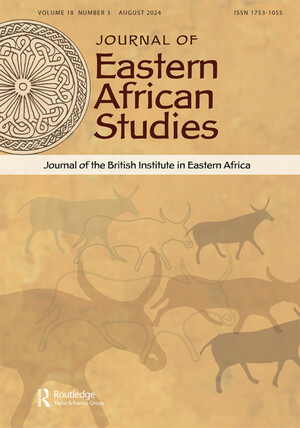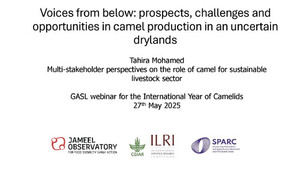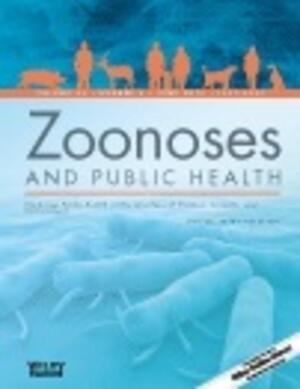

International Year of the Camelids: Collaborative effort needed to tackle unknown camel diseases in the IGAD region
As the world commemorates the International Year of the Camelids, researchers and stakeholders convened at ILRI’s Nairobi campus on the 25 July 2024 to discuss the pressing challenges posed by unknown camel diseases. Those present included representatives of the International Livestock Research Institute (ILRI), Mercy Corps and the Intergovernmental Authority on Development (IGAD) through its Centre for Pastoral Areas and Livestock Development (ICPALD).
For decades, the livelihoods of pastoral communities who keep camels in the IGAD region have been challenged by outbreaks of unknown diseases. Covering an eight-country trade bloc in Africa (Djibouti, Eritrea, Ethiopia, Kenya, Somalia, South Sudan, Sudan and Uganda), this region is known for its diverse ecological zones and significant pastoralist communities. It is home to nearly 20.3 million camels, which are kept in the arid and semi-arid areas that make up 60–70% of IGAD’s land mass.
Camelids, particularly camels, are invaluable to pastoral economies, providing milk, meat, hides, and transportation. Over the last few years, there has been increased commercialization of camel products, making them available not only in the informal sector but also in major supermarkets and butcheries. However, unknown diseases threaten camel health and productivity, posing significant risks to the communities that depend on them.
The collaborative consultative regional meeting held in July addressed the diagnostic and surveillance limitations in the control of unknown camel diseases. While highlighting the vital role camelids play in the livelihoods of pastoral communities across Africa and Asia, participants also underscored the urgent need for enhanced research and development through a centre or network of excellence. The key objectives were to discuss collaborative research efforts, share critical insights and develop innovative strategies to mitigate unknown camelid diseases and other related threats.
In his address, ICPALD director Dereje Wajira recognized the value of partnerships: ‘Engaging in conversations with key stakeholders is essential for effectively addressing the challenges posed by unknown camel diseases in the IGAD region. By collaborating with member states, development partners and research institutions, we can transform these discussions into actionable strategies that not only unravel unknown camel diseases but also enhance the value of camels for food and nutritional security as well as income generation.’
Kenya, Ethiopia and Somalia have signed a total of six bilateral memoranda of understanding and one multi-lateral memorandum of understanding on cross-border cooperation on animal health and sanitary measures. These agreements could rapidly improve prevention and control of priority transboundary animal disease as well as information sharing across borders during disease outbreaks.
‘We, ILRI and the broader CGIAR, welcome and appreciate the emerging collaboration with Ethiopia, Kenya and Somalia national agricultural research systems’ partners, community organizations, IGAD and Mercy Corps aimed at addressing challenges faced by camel farmers. The unknown diseases pose a considerable challenge to camel development, hence reducing the resilience of nearly 30 million people in the Horn of Africa,’ ILRI director general Appolinaire Djikeng said.
Key discussions centred on diagnostics, disease surveillance, early detection and response mechanisms. While deliberations could not identify any one solution, experts agreed on the need for three things:
- Establishment of a technical working group with key stakeholders;
- Enhancement of communications and advocacy on the value of the camel; and
- Identification of funding and policy support to highlight research initiatives and implement effective disease control measures through the establishment of a potential centre of excellence network in the region.
‘Approximately half of the world’s camel population lives in sub-Saharan Africa and while most diseases of livestock are well known, very little is known of camel diseases. This is why we use words such as “unknown camel disease”, “acute camel death”, and “sudden death of camels” to describe disease outbreaks in the camel population year in, year out. There is an urgent need to address this problem collectively as development actors, research institutions, institutions of higher learning and herders to protect this crucial livelihood asset,’ Diba Wako, director of the Regional Livestock Program at Mercy Corps, emphasized.
By bringing together diverse stakeholders, this event marked a significant step towards safeguarding the health of camelids and ensuring the sustainability of pastoral livelihoods. The collective efforts of ILRI, Mercy Corps and IGAD–ICPALD exemplify a commitment to advancing knowledge and developing solutions to the challenges faced by camel-rearing communities.
As we celebrate the International Year (2024) of the Camelids, this gathering serves as a reminder of the critical need for continued collaboration and innovation in addressing the unknown diseases that threaten these animals. This will chart the way for a healthier, more resilient future for camelids and the communities that rely on them.
Read more and access resources here: International Year of the Camelids
Banner Image: A veterinary medicine for dromedary camel health and welfare training was held at the ILRI Kapiti Research Station 1-5 April 2019 (photo credit: ILRI/Paul Karaimu).
You may also like

ILRI News
New GBADs report shows the critical role of Ethiopia's camels in sustaining pastoral communities and the national economy

Preventing future pandemics hinges on improving Global South livestock systems, says new One Health playbook
Related Publications

De novo genome assembly, annotation, and characterization of chemosensory genes in the camel ked (Hippobosca camelina)
- Kebaso, F.
- Diallo, S.
- Kibet, C.
- Hashim, S.
- Makwatta, J.O.
- Getahun, M.
- Getange, D.
- Domelevo Entfellner, Jean-Baka
- Masiga, D.

The moral economy behind the commoditisation of camel milk in northern Kenya
- Mohamed, Tahira Shariff
- Nori, Michele

Voices from below: prospects, challenges and opportunities in camel production in an uncertain drylands
- Mohamed, Tahira Shariff

Camels, climate, and capital: Subverting the narrative of pastoral sustainability
- Mohamed, Tahira Shariff
- Jilo, Roba Bulga

Coxiella burnetii serostatus in dromedary camels (Camelus dromedarius) is associated with the presence of C. burnetii DNA in attached ticks in Laikipia County, Kenya
- Rooney, T.
- Fèvre, Eric M.
- Villinger, J.
- Brenn-White, M.
- Cummings, C.O.
- Chai, D.
- Kamau, J.
- Kiyong’a, Alice
- Getange, D.
- Ochieng, D.O.
- Kivali, Velma
- Zimmerman, D.
- Rosenbaum, M.
- Nutter, F.B.
- Deem, S.L.










